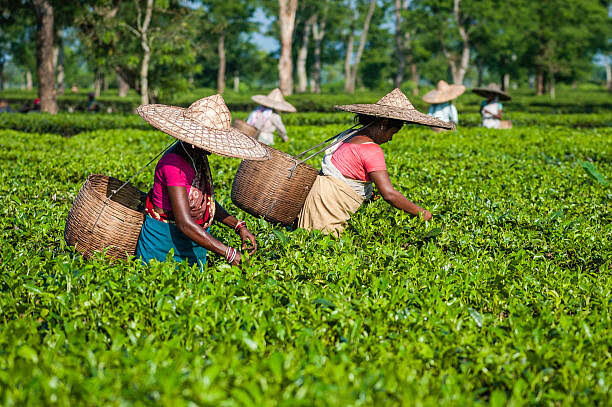Our Terms & Conditions | Our Privacy Policy
Tea Association of India flags sub-standard imports, seeks curbs, oversight
Guwahati, May 29: Industry representatives on Wednesday flagged the issue of the rising influx of inferior-quality tea into India and told the Parliamentary Standing Committee on Commerce that stringent checks are required to regulate imports.
The Parliamentary Committee headed by Rajya Sabha member Dola Sen held separate meetings with the producer associations, exporter bodies and labour department officials in Guwahati.
In its representation, the Tea Association of India said a gross mismatch concerning tea imported into India and the figure published by the Tea Board of India is noted in the industry circles which could be because the majority of tea imports are not being declared on the tea council portal as required with an attempt to conceal actual import figures which seem to be 2 to 3 times higher than official figures.
“Most of the duty-free tea that has been imported is being re-exported as “Indian Tea” in violation of national law. Most teas being imported are cheap quality teas from origins including Iran, Vietnam and Africa. Re-export of these teas as ‘Indian Tea’ is giving a bad reputation to Indian tea, undermining the price of Indian tea to the detriment of genuine exporters and image of Indian tea,” TAI told the panel.
A sizable portion of these cheap duty-free imported teas also find their way into the Indian domestic market and are sold as produced in India, crippling the prices of Indian teas at the domestic market.
The planters’ body sought fixing of a minimum import price of tea to stop the influx of cheap quality teas into India and imposition of quantitative restrictions on the import of tea into India and anti-dumping duty.
The India Tea Association also said there has been a surge in tea imports in the last 3-4 years (85 per cent in the case of Kenya) which has aggravated the domestic oversupply situation.
“This influx has exacerbated the oversupply situation, contributing to falling prices despite production shortfall in 2024,” the largest tea producers’ body said, seeking stringent import regulations to safeguard Indian tea.
TAI further stated that the present approved chemicals have limitations in controlling pests and TRA has conducted trials on certain new-generation molecules which were found to be extremely effective against pests.
The industry associations also pointed out that different MRLs adopted by different countries for the same chemical on the same product have been a major barrier in international trade, and sought harmonization of MRL levels.
“Government should arrange with EU/USA/Japan towards a reciprocal agreement to accept lab reports of NABL certified labs in India or identification of labs approved for this purpose so that Indian goods can be tested before shipment without threat of rejection on arrival,” they added, also mentioning other issues the industry is facing.
Images are for reference only.Images and contents gathered automatic from google or 3rd party sources.All rights on the images and contents are with their legal original owners.



Comments are closed.